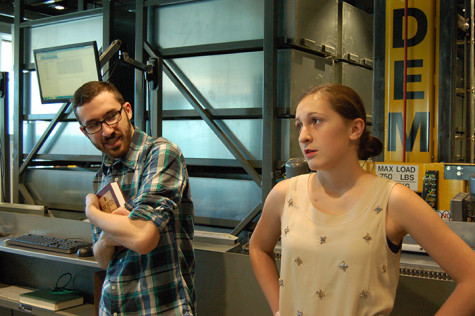He said, she said: Are drone strikes worth the risk?
November 16, 2014
He Said:
As I write this, Veterans Day 2014 is winding to a close. All day, I’ve seen signs, articles, and tweets suggesting that I “remember our troops” and “thank a vet.”
Veterans Day reminds Americans of the servicemen and women who risk everything in order to keep the nation that they love safe.
But what if they didn’t need to risk it all? What if keeping America safe was as easy as the click of a mouse?
The technology already exists in remote controlled aircraft called drones. Drones are essentially enhanced versions of the RC plane you might of played with as a kid. The two main differences are that they can be controlled from hundreds of miles away, and that they can be weaponized.
The question is, of course, whether bombing people remotely from far away is ethical. To put things far too simply, I think that the answer is “Yes.” To be a bit more specific, the answer is really “It depends.”
With the recent rise of the violent radical Islamic group ISIS in the Middle East, drones have been used to combat the group’s advances. The United States has been doing this for some time, and, according to The Guardian, the United Kingdom began drone strikes of their own on ISIS on Nov. 10.
The threat posed by ISIS, to both Americans and others, is clear. It is an incredibly violent group that has shown that it is willing to stop at nothing to achieve its radical goals. If the technology exists to defend our nation against ISIS remotely, the question is no longer about if it is ethical to use that technology. Instead, one must ask if it would even be ethical to put real troops on the ground.
I would argue that the only right choice would be to use drone strikes against groups like ISIS, who pose an extreme threat. Are drones a technology that need to be used in every combat situation? Not at all. There are plenty of situations that could be better handled by actual troops.
But with groups like ISIS, the best bet seems to be dealing with it remotely. With technology like drones, maybe we’ll see more and more veterans safe at home on Veterans Day in the coming years.
SHE SAID:
Drones are a great tool for our military, especially those involving a highly dangerous target. They can identify and pinpoint their strike miles away in the sky without risking the lives of our troops.
With a target like ISIS afoot, using a drone would be a logical plan of attack.
But, how safe is a drone if you turned it around, pointing the missile on our territory? It may be paranoia setting in, but apparently a drone being hacked is not an over-exaggerated risk.
The BBC offered some input on the computer system inside a drone and how outside civilians and enemies can manipulate it in their article, “Are drones the next target for hackers?”
The system of a drone navigates through Global Positioning System (GPS). This system can be disoriented making the drone think enemy territory is a home base. Once this drone is landed, the hackers can then approach it and kidnap it without the drone responding in defense.
At the University of Texas, assistant professor of aerospace engineering, Todd Humphreys, said he believed that he and a group of students could perform the act of a “spoof” or fooling of a drone. With only $2,000 worth of equipment and the supervision of the US Department of Homeland Security, they dislodged a flying and functioning drone.
We think ISIS is dangerous on the ground. How more dangerous will they be if they disable and then use our weaponry?
A drone may not be able to fly back over to the United States if hacked, but it can attack the surrounding military stations.
So, yes, a drone is a great weapon to have if you want to be nameless and safe about taking out an opponent in war, but in the wrong hands it can be equally as dangerous if the cross hairs are aimed back at you.
Contact the writers:
[email protected]















